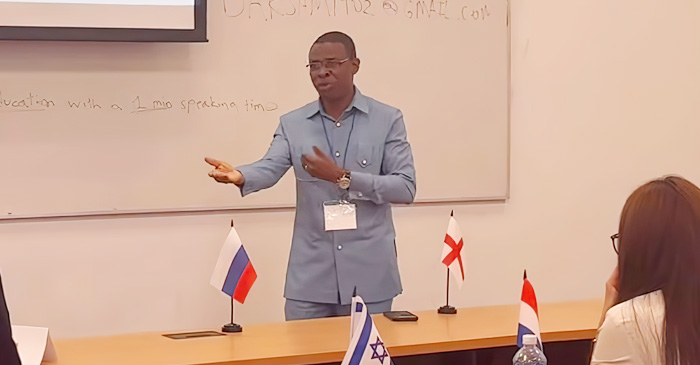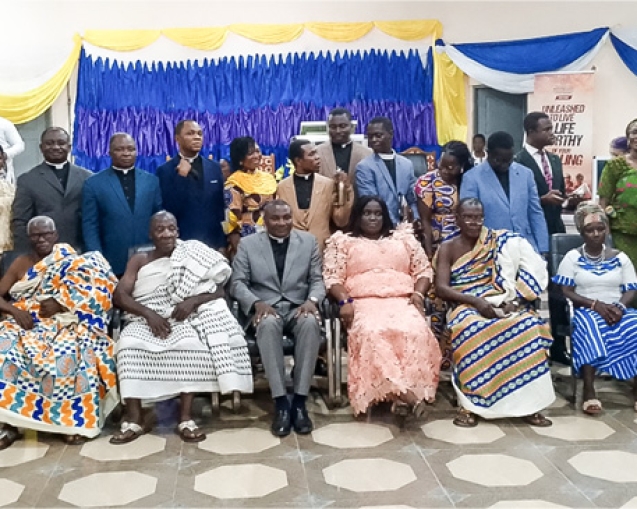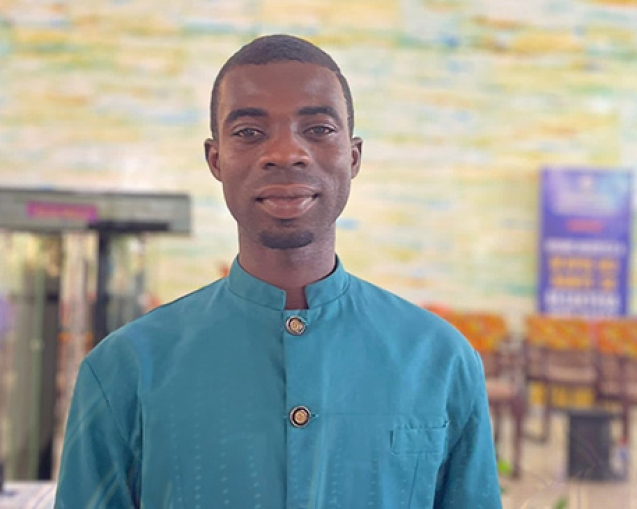The Director of the Pent Media Centre, Pastor Dr. Felix Dela Klutse, has called on world leaders to recognise digital education as a universal human right, stressing that internet access can no longer be treated as a luxury but a necessity in today’s world.
Speaking at the recently-held United Nations Youth Impacts Conference in New York under the theme “Ensuring Equitable Access to Quality Education in the Digital Era,” Dr. Klutse delivered an impassioned address that highlighted the growing digital divide and its impact on education globally.
His presentation focused on the urgent need for global collaboration to close the gap and ensure equitable access to digital learning for all, regardless of geography or circumstance.
“Education is not a privilege. It is a right,” he stated firmly, pointing out that while digital tools have revolutionised education in many parts of the world, they have also deepened inequalities where access to internet, devices, and trained teachers is still lacking.
Dr. Klutse noted that more than 2.6 billion people remain offline, most of them in Sub-Saharan Africa, South Asia, Latin America, and the Middle East. Even in places where there is connectivity, high costs, poor infrastructure, and shared devices make meaningful online learning difficult—especially for children in low-income and rural communities.
He painted a stark picture of digital exclusion, revealing that over 770 million people still live without reliable electricity, and millions of children are forced to share one phone among several siblings or travel long distances just to connect to Wi-Fi.
Dr. Klutse also drew attention to the plight of over 43 million displaced children worldwide—many living in refugee camps or conflict zones—who lack access to both formal and digital education. Using examples from Ukraine, Gaza, and Afghanistan, he stressed the importance of maintaining education during wars and humanitarian emergencies.
He pointed out that girls are particularly disadvantaged in many regions, either due to cultural barriers, safety concerns, or outright bans—such as those currently enforced in Afghanistan. He also highlighted the absence of inclusive content for non-English speakers and children with disabilities, calling for a greater push towards localised and accessible educational materials.
Despite these challenges, Dr. Klutse praised innovative initiatives like Kenya’s solar-powered offline learning systems, which are helping underserved communities stay connected to education. He also cited India’s government-led Diksha platform, acknowledging its potential while pointing out its limited reach in rural areas.
He commended ongoing efforts by the UN, including Sustainable Development Goal 4 (SDG 4), UNESCO’s Global Education Coalition, and the GIGA Project by UNICEF and the International Telecommunication Union (ITU), which aims to connect every school to the internet by 2030. However, he urged that these efforts must be scaled up with urgency.
Dr. Klutse ended his address with a passionate appeal to world leaders, saying: “If we truly believe that education is a right, then we must act like it. The internet is no longer a luxury—it is a lifeline. Let us ensure that no child, no matter where they live, is left behind in this digital era.”
The United Nations General Assembly, made up of all 193 member states, remains the central platform for addressing global issues like education, peace, development, and human rights. The Youth Impacts Conference, held from June 10 to 20, 2025, at Hofstra University in New York, brought together more than 100 university students, educators, policymakers, and professionals from around the world.
With its diverse and inclusive nature, the conference gave voice to perspectives from both developed and developing nations, reinforcing a shared global resolve: to build a future where every child has access to quality education in a digitally connected world.
PENT NEWS.


















